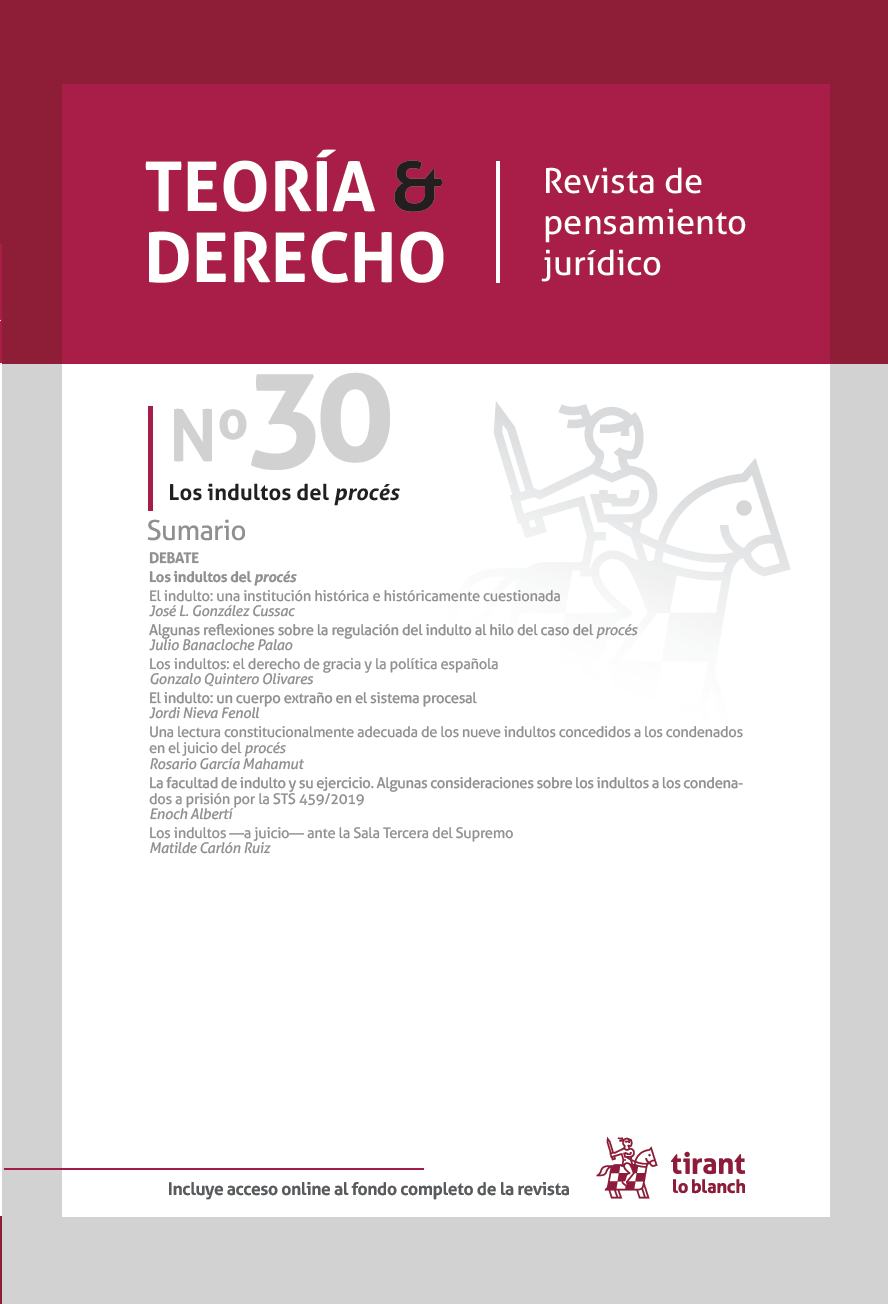Algunas reflexiones sobre la regulación del indulto al hilo del caso del procés
DOI:
https://doi.org/10.36151/td.2021.013Palabras clave:
derecho de gracia, indulto, proceso catalán, utilidad públicaResumen
Los indultos concedidos a los condenados por los delitos cometidos en septiembre y octubre de 2017 durante el intento de secesión de Cataluña (caso del procés) han reavivado la polémica acerca de la regulación vigente en materia de indultos. Al tratarse de una ley de 1870, es perfectamente posible que los tribunales ordinarios procedan a inaplicar o modular la aplicación de sus preceptos, cuando los consideren contrarios a las exigencias constitucionales. Así sucede con los indultos otorgados no por razones de justicia o equidad, sino de utilidad pública, como son los del procés, máxime cuando se conceden en bloque —lo que puede suponer un indulto general— y existiendo un evidente conflicto de interés —al ser los beneficiados los líderes de partidos políticos que dan estabilidad parlamentaria al Gobierno—. En cualquier caso, una nueva ley de indultos permitiría evitar el uso indebido de las medidas de gracia y ajustarlas a lo que requiere la Constitución.
Descargas




















